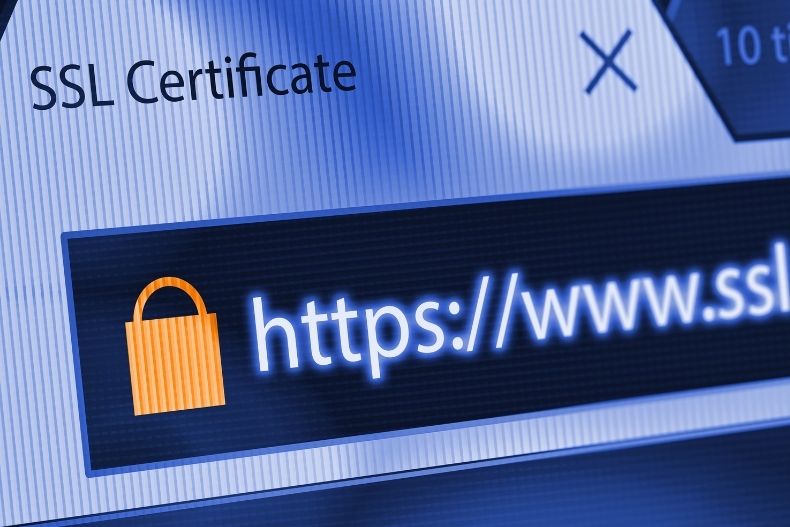There are many reasons you should get an SSL certificate for your business, but the most important is to prevent hackers from stealing your customers’ private information. HTTPS encrypts data between a user and the server they are using, preventing anyone who may be eavesdropping on their connection from seeing what they are doing. When you have an SSL certificate installed on your website, it will automatically redirect users to the encrypted version of the site by default.

What is an SSL Certificate, and how does it Work?
An SSL certificate is a legal document that permits you to use encryption technology on your website. The web browser uses the information from this document to ensure it’s talking to the correct site and not a hacked version of it or an impostor looking for passwords or credit card numbers. When you visit a website, your browser checks if there’s an encrypted connection by inspecting whether they have a valid security certificate installed. If everything matches up, users will be able to access their content through the secure channel without any problems, as long as they’re using the latest versions of Chrome, Firefox, Internet Explorer/Edge, and Safari browsers.
Why do you need to have One for your Business?
There are several reasons you need to have an SSL certificate for your business. For one thing, it’s a Google ranking factor, and having the green padlock in search results can increase click-through rates by more than 35%. There is also evidence that Google will rank websites higher when they use SSL certificates because users prefer secure sites over insecure ones. Getting visitors onto your site who don’t trust it will not help lead them to complete purchases or fill out contact forms on there, either.
What Happens if I don’t get One?
If you aren’t using encryption technology in place on your website, hackers may obtain important information from customers such as their name, address, and card number, which could cost you a lot of money to deal with that. If you were hacked, you could harm your brand and customer loyalty, which is not good for business.
If the website doesn’t use an SSL certificate, it will be treated as non-secure by browsers like Google Chrome (and Internet Explorer/Edge). This means when customers try to access this site, they’ll see a warning in their browser saying “not secure” next to the address bar. It reduces trust in your company’s ability to protect their data while also leading them away from your site before making any purchases or filling out contact forms there. Without one current, visitors won’t know whether the information available through shopping carts/contact forms are kept safe, so they may avoid using these features.
Benefits of having an SSL Certificate for your Company
There are many benefits to having an SSL certificate for your company, such as preventing hackers from stealing customer information and boosting Google rankings. It can also increase conversions by 35% because customers feel more comfortable entering their data if they see the green padlock displayed next to the address bar on a website rather than just seeing it say “not secure.”
Getting visitors onto your site who don’t trust it will not help lead them to complete purchases or fill out contact forms on there, either. Without one, current visitors won’t know whether the information available through shopping carts/contact forms is kept safe either, so they may avoid using these features of websites even though they would be otherwise interested in doing business with you.
Setting up a new website that needs an SSL Certificate
When you set up a new website, the first thing to do is find an SSL certificate company and purchase one. After this process has been completed, it will be time to install your security certificate on your site’s web servers so that everything works correctly with encryption technology.
Suppose you already have a business website but want to ensure it uses SSL certificates for better protection and rankings in Google searches. In that case, there are several options available for this, such as upgrading from a free Domain-based Security Certificate (DV) or Organization Validated (OV). With either of those certs installed, visitors won’t see any warnings about your not being secure when they visit through their browsers. These don’t require extensive verification by the issuer like other more expensive options available.
To protect your organization and customers from cyberattacks, we recommend that you purchase an SSL certificate. This will create a secure connection between your company and its clients to transfer information securely. If you already have a business website and want to make sure it uses SSL certificates for better protection and rankings in Google searches, there are several options available. Learn how to manage the lifecycle of keys and digital certificates across your business here.